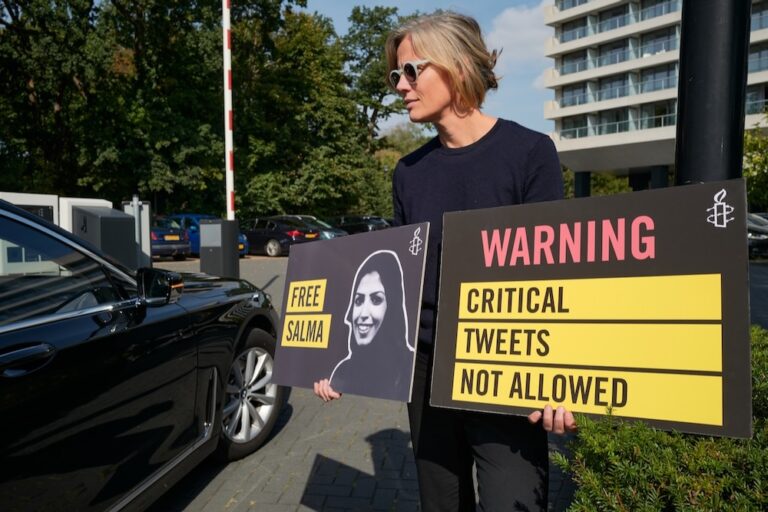(RSF/IFEX) – In a letter to Information Minister Fouad Al-Farsi, RSF protested the decision to subject the pan-Arab daily “Al-Hayat” to advance censorship. “Over the past few months there seemed to be a small degree of press liberalisation in the country, but now the authorities are reversing this trend,” stated RSF secretary-general Robert Ménard. “This […]
(RSF/IFEX) – In a letter to Information Minister Fouad Al-Farsi, RSF protested the decision to subject the pan-Arab daily “Al-Hayat” to advance censorship. “Over the past few months there seemed to be a small degree of press liberalisation in the country, but now the authorities are reversing this trend,” stated RSF secretary-general Robert Ménard. “This is the second time in one week the authorities have exerted pressure on major newspapers. These measures reflect the government’s will to sanction any media criticism of the authorities.” The organisation recalled that in November 2001, King Fahd Ibn al-Saud was added to RSF’s list of international press freedom predators.
On 22 March 2002, the information minister censored “Al-Hayat”. This decision was taken after Daoud Shurayan, the daily’s Riyadh bureau chief, criticised the minister’s comments on censorship during a meeting with local newspaper editors-in-chief. Moreover, the minister had recently prohibited the press from publishing his remarks. Daoud Shurayan noted that he did not consider what had been said to be “state secrets.” In 2001, a royal decree authorised “Al-Hayat” (owned by the son of defence minister Prince Khaled bin Sultan), as well as other Saudi newspapers and another pan-Arab daily “Ash Sharq al-Awsat”, to be distributed without advance censorship.
On 18 March, Interior Minister Prince Nayef ordered the dismissal of editor-in-chief Mohamed Al-Mokhtar Al Fal after the 10 March edition of the private daily “Al Madina” published a poem by Abdul Mohsen Musalam (see IFEX alert of 25 March 2002). The poem, titled “The Corrupt on Earth”, accused certain judges of corruption and abuses. The poet wrote that, “it is sad that in the Arab world justice suffers at the hands of a few judges who are only concerned about their bank accounts.” On 16 March, Abdul Mohsen Musalam, a well-known Saudi Arabian poet and writer, was arrested and taken to the Djedda prison for writing the poem.


